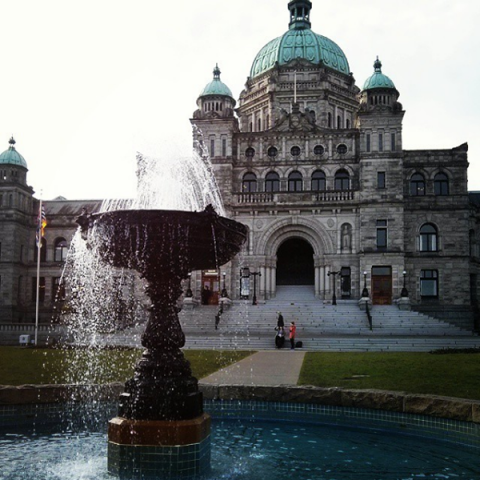Getting big money out of BC politics
While British Columbians were divided over which of the main parties to support in the provincial election, most seem to agree on one thing: the need to get big money out of our politics.
But it’s not enough to stop cash donations by corporations and unions.
Any ban must be comprehensive, meaning no contributions of property and services, prohibiting loans or guaranteeing loans, and banning institutional contributions to party leadership and constituency nomination races.
We need strict limits on individual donations to political parties so wealthy people do not have an advantage.
Quebec limited political donations in 2013, capping them at $100 a year (an extra $100 allowed in election years).
We must also reduce the amount parties can spend during and between elections.
The expense limit for political parties in BC’s 2017 election was a whopping $4.9 million, meaning parties with big bucks can finance slick advertising and armies of campaigners. In Quebec, party election spending is limited to $0.68 per elector, which would limit spending to about $2.3 million if applied in BC.
Without limits between elections, parties can spend heavily in the months leading up to the campaign period. Unless a spending limit between elections is enacted to curb the undemocratic influence of corporate money, the huge war chest raised by BC’s Liberal Party from corporate donations, for example, can be used freely going forward.
Once we have strict donation and spending limits in place, we need a fair and transparent system for financing political parties.
Premier Christy Clark says banning big money means taxpayers must subsidize political parties. But we already do and it’s not very fair. Political donors get tax breaks that cost about $16 million per election cycle or $4 million annually.
Here are three viable alternatives for funding BC’s political process.
- Per-vote subsidy: Canadian political parties used this federally between 2004 and 2015 and received $2.04 annually for each vote won in the previous election. The per-vote subsidy is problematic, however, because it favours the incumbent party by locking in funding from one election to the next even though a voter’s preference may change over a government’s four-year term.
- Matching small donations: Small donations up to a certain amount (for example $25) are matched with public funding. Under New York City’s innovative system donations are publicly matched 6-to-1. This successfully increased both the number of small donors and proportion of small donations, and made the demographic profile of donors more representative of the population. Tailoring this model for BC would build incentives for bottom-up political engagement into our campaign finance system.
- Universal voucher: A universal voucher of $10 or $20 per year in the elections section of income tax returns could be directed to the political party of a voter’s choice (or withheld if dissatisfied with the available options).
Changing how we finance elections is a critical first step in containing the influence of big money. To make our democracy more vibrant and fair, we must also tackle problems like corporate investments in lobbying and the root causes of our society’s deepening inequality.
Banning big money needs to be the beginning, not the end, of a conversation among British Columbians about restoring integrity to our democracy.
Alex Hemingway is Public Finance Analyst at the Canadian Centre for Policy Alternatives BC Office. Shannon Daub is the CCPA-BC’s Associate Director and co-Director of the Corporate Mapping Project.






















